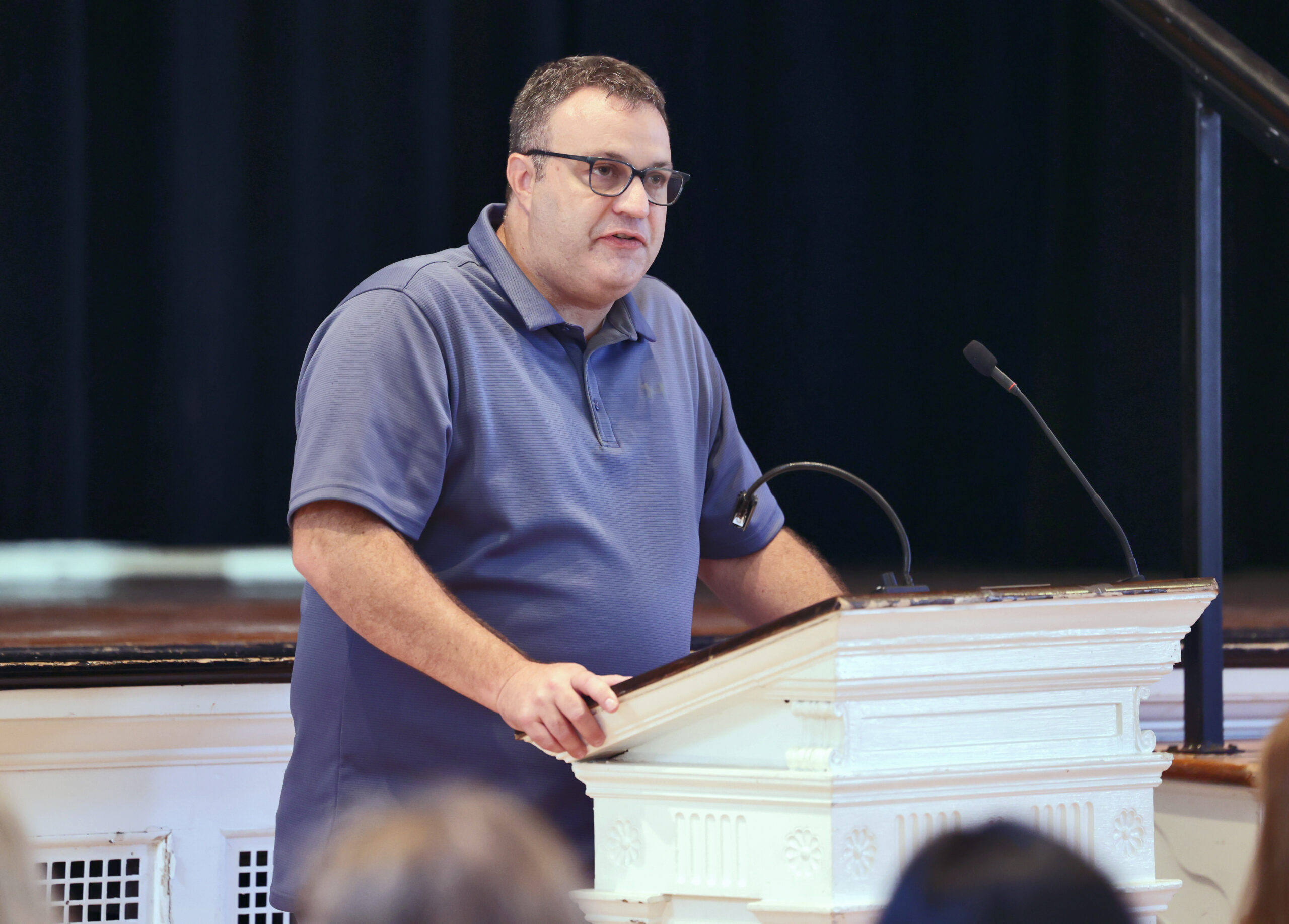MS Teacher Nick Miller on Honor
Middle School students gathered on Thursday, August 28 to reflect on their Honor Code, hearing from a variety of speakers. English Teacher Nick Miller shared his thoughts.
When I was in college, my little sister—five years younger than me—ended up in the same AP English class I had taken in high school. One day, she decided to take one of my old essays and submit it as her own.
Without asking me. And, obviously, without putting my name on it.
And the part that stung most? She got a better grade on my essay than I did. That hurt. It was upsetting not only because she outscored me using my own work, but because my teacher did not even recognize the essay as mine.
At first, I laughed about it. It was funny. But underneath, it was embarrassing and unfair. That experience taught me how much respect matters—not just for rules, but for the effort and voice of others. And it reminded me that honor is not about the grade we receive, but about being truthful in how we represent our work.
Years later, I thought I had left that lesson behind. But it came back in a different way. Some of you know that I am a writer and scholar. Not too long ago, I learned that AI companies had scraped my published writings and fed them into their massive data sets. That means years of my work—essays, research, ideas—were taken without my permission, without credit, and (again) without my name attached.
While I sometimes joke that I get to call myself AI as a result, the revelation was actually pretty devastating. In scholarship, a single essay can represent years of thinking, researching, drafting, revising, failing, and trying again. To see all of that labor reduced to a line of code—algorithmized and spit back out in seconds, without acknowledgment—was heartbreaking. It was like watching something I had poured myself into be erased, my voice swallowed up and made unrecognizable.
That experience reminded me how much honor depends on giving credit where it is due. And how much responsibility we have, whether as students or as scholars, to acknowledge the effort that goes into meaningful work.
But I have also seen the positive side—the way honesty builds something strong. Not long ago, a student who is now in the Upper School faced a pretty serious honor code violation in my class. Honestly, it would have been easy for them to deny it or make excuses. Instead, they were vulnerable and admitted what they had done.
Because they were honest, we were able to rebuild trust. In fact, that choice turned what could have been the end of our relationship into the beginning of a stronger one. That is what trust looks like: the courage to be real, even when it is hard.
Look, the Honor Code is not about being perfect. Every one of us makes mistakes. What matters is what we do next. That is what reflects our true character. Do we hide and pretend—or do we choose honesty, respect, responsibility, and trust?
When we live by the four pillars shared with you today, we protect our voices, we respect the work of others, and we honor the trust our community places in us. That is what the Honor Code is about. It is not just about avoiding unauthorized help with our schoolwork. It is about not taking shortcuts that damage trust.
So remember: mistakes are not the end of the story. They are the beginning of growth—if we have the honor to face them honestly.

